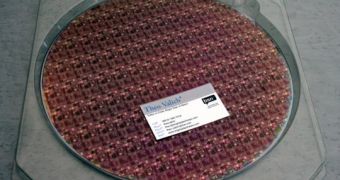Yesterday, Common Platform members announced that the coalition will move to gate-last technology when it makes the transition to the 20nm manufacturing node, plans for 32nm and 28nm chip fabrication remaining unchanged at this time.
The Common Platform Initiative is made out of IBM, GlobalFoundries, and Samsung Electronics, some of the world's largest semiconductor manufacturers, in an effort to introduce common process technology across all of their production facilities.
This helps in reducing research and development costs as the three companies can share those expenses between them.
Up until now, the companies were some of the most vehement supporters of the gate-first approach, GlobalFoundries reaffirming its support for the technology more than just a few times.
However, its position has now changed as the company decided to move to gate-last with their 20nm node.
The difference between the two technologies lies in the timing when the metal electrode is deposited, before or after the high temperature activation anneal(s) of the flow, gate-first, at least in theory, allowing customers to transition to a lower manufacturing node without having to redesign their chips.
According to Jon Carvill, VP of GlobalFoundries Communications, the change “is due to the design rules and desired scaling our customers want at 20nm. Gate Last was the best option to hit it and Gate First was the better option at 32/28nm.
“We have multiple customers engaged on Gate First 32nm/28nm as does Samsung (who made this disclosure with us yesterday)," concluded the company's rep.
Until Common Platform announced the switch to gate-last, Intel and TSMC were the major proponents of this technology.
As Hot Hardware reports, the announcement won't have any impact on GlobalFoundries 2011 roadmap and is not expected to bring any changes in the company's plans to move below the 28nm node.
In 2011, GlobalFoundries should deliver AMD's highly anticipated Bulldozer and Llano chips.

 14 DAY TRIAL //
14 DAY TRIAL //